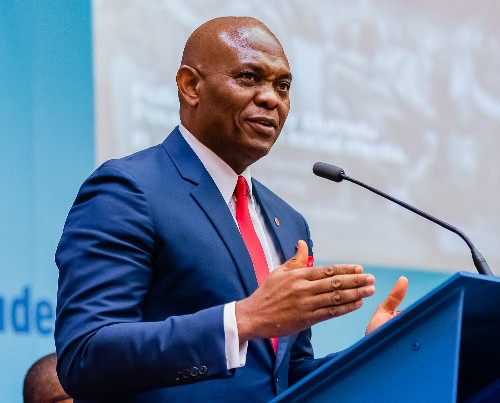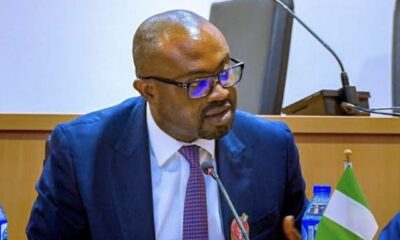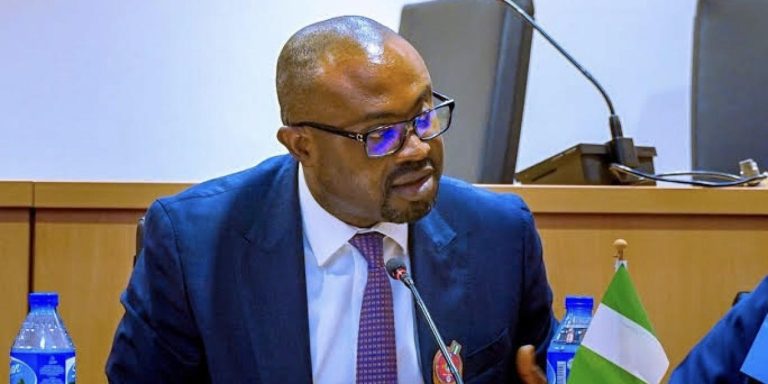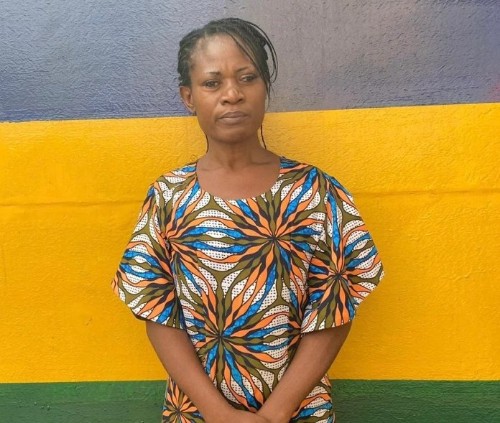Goodwill Message Delivered by Tony O. Elumelu, CFR Chairman: Heirs Holdings Group, UBA Group, Transcorp Group, at the 3rd Anniversary of Nigerian Upstream Petroleum Regulatory Commission (NUPRC)
Theme:
Transformation, Innovation & Excellence
Transcorp Hilton Abuja
Monday, October 21, 2024
Introduction
Good morning, distinguished guests and fellow stakeholders in Nigeria’s – and Africa’s energy future.
It is my very great honour to address you today, as we commemorate the third anniversary of the Nigerian Upstream Petroleum Regulatory Commission (NUPRC).
Firstly, I congratulate the leaders of NUPRC for this momentous occasion.
As Chairman of Heirs Energies, an integrated and indigenous energy group playing a key role in facilitating energy sufficiency in Nigeria, and Chairman of the United Bank for Africa, which provides substantial funding across the energy value chain, amounting to several billions of US Dollars, to both indegenious and international oil and gas operators and oil trading companies, I stand before you at the intersection of finance and energy, two pillars that are crucial to our nation’s prosperity.
Today’s theme, “Transformation, Innovation & Excellence,” resonates deeply with the challenges and opportunities facing Nigeria’s energy space.
I commend the transformative and bold initiative of NPRC: the Project 1 million barrel of oil (MMBOPD).
We are faced with the threat of Declining Production and Investment
We must acknowledge the elephant in the room. Nigeria’s oil production has been on a downward trajectory, falling from peaks of over 2 million barrels per day to recent lows, below 1.5 million.
This decline translates to lost revenues, reduced global market share, and missed opportunities for national development.
The root causes are multifaceted: aging infrastructure, security challenges in the Niger Delta, stalled investments, regulatory uncertainties, and a global shift towards renewable energy that has compounded the investment challenge.
These factors, combined, threaten the very foundation of our economy, as we are heavily dependent on oil.
As a nation, we cannot permit this to continue, and squander our inheritance and betray our next generation.
The Solution: Project 1MMBOPD and Beyond
This is where Project 1MMBOPD is so critical, a crucial part of the solution to unlocking the next phase of our development.
By targeting to grow production by 1 million barrels of oil per day from current levels, we are setting a clear and challenging goal; one that I believe is achievable as I see all stakeholders are at the table and will commit to play their parts and bring the needed collaboration, innovation, and excellence to make this project a success, for the benefit of our country.
To be sustainable, this initiative should go beyond just increasing production; it should catalyse a comprehensive strategy to revitalize our entire upstream sector.
The project should encompass key elements:
Infrastructure Modernization: Upgrading our aging facilities to improve efficiency and reduce downtime.
Security Enhancement: Implementing advanced technologies and community engagement strategies to secure our assets.
Regulatory Streamlining: NUPRC’s commitment to creating a more transparent and efficient regulatory environment.
Investment Attraction: Leveraging this improved landscape to attract both domestic and foreign investment.
Technology Adoption: Embracing cutting-edge technologies to optimize production and reduce environmental impact.
By addressing these areas comprehensively, we will not only aim to reach the 1MMBOPD target but also to create a sustainable framework for future growth.
Focus on Gas:
As we embark on this ambitious project to boost our oil production, let us also keep our focus on the critical role of gas in our energy mix.
The path to 1MMBOPD must be constructed on strategies that maximize the value of our gas resources, reducing flaring and increasing utilization for domestic and export markets.
This dual focus will help diversify our energy portfolio and mitigate the risks associated with over-reliance on oil.
We know the criticality of gas in improving access to electricity in Nigeria. Access to electricity is the single most important factor in our quest for industrialisation. You can now see that our oil and gas sector is pivotal to the development of our country.
NUPRC’s Achievements
In its three short years, NUPRC has already laid the groundwork for this solution.
Your efforts in promoting sustainable practices, such as the Nigerian Gas Flare Commercialisation Programme, exemplify the innovation required to balance environmental stewardship with economic growth.
These initiatives not only reduce our carbon footprint, but also create valuable opportunities for our workforce and communities.
Role of Independents – Heirs Energies’ Progress
At Heirs Energies, we are actively contributing to this solution.
In the first 100 days after we took over operational control of our OML-17 asset in 2021, we doubled our production from 28,000 to over 50,000 barrels per day.
We suffered a setback with unabated crude theft, which caused us to shut-in and work collaboratively with the NNPC Limited to better secure the pipeline system. From a low of 5% terminal receipts in December 2021, year-to-date in 2024, we have recorded an average terminal receipt of 85%; a remarkable improvement and a good example of what a purposeful collaboration between NNPCL and operators underpinned by rigorous execution can deliver.
With the improvement in the operating environment, we have restarted our investment and production growth journey, and have now successfully reversed the fall in production that we suffered in 2022 and 2023, as a consequence of the evacuation challenges. A few days ago, OML-17 attained over 51,000 barrels per day, and we continue our production growth journey.
Relatedly, we are also working to grow our gas production that feeds many power generation plants and gas-based industries.
These achievements indicate what is possible, where there is a strong industry collaboration, and in particular, when regulatory support meets private sector drive and innovation.
Africapitalism and Shared Prosperity
I am not just an oil and gas investor – I am an investor across the Nigerian – and indeed Arican – economy.
I have a very clear vision of where Africa should be and needs to be.
A vision to address the promise of our enormous youth population and to ensure Africa reaps the rewards, finally and fittingly, of her resource wealth.
That younger generation is why I invest in entrepreneurs.
That is why I speak of Africapitalism.
My belief that the private sector has the power to transform the continent through long-term investments, but that it must work collaboratively with the public sector.
Africapitalism advocates shared prosperity, ensuring environmental sustainability, and fostering community development.
This philosophy aligns perfectly with NUPRC’s vision and the objectives of Project 1MMBOPD.
Let us all be Africapitalists! Doing good and doing well!
UBA Group’s Commitment
Heirs Energies provides the sectorial expertise needed to transform our oil and gas sector, and our UBA Group has long remained a committed funding institution on this journey of transformation.
As a global financial institution, UBA, positioned not just across Africa, but in New York, in London, in Dubai and in Paris, has been committed to providing the necessary funding and financial expertise to support both established players and emerging indigenous companies in reaching our collective goals and implementing the solutions we have outlined.
Call for Collaboration
To the international oil companies present today, I urge increased collaboration with indigenous firms.
Firms, such as Heirs Energies, that have taken your traditions of best practice and global standards and integrated them into proudly indegenious capabilities, and others, are truly capacitized partners.
By combining your global expertise with our local knowledge and commitment, we can drive innovation and excellence across the entire value chain, effectively addressing the challenges we face.
WRAP UP
The launch of Project 1MMBOPD is an excellent industry initiative; it is a national imperative and a comprehensive solution to the challenges facing our oil and gas sector, and most importantly our country’s economy.
It embodies the transformation we seek, the innovation we need, and the excellence we must achieve.
NUPRC’s leadership in this endeavour is commendable, and I call upon every stakeholder here today to rally behind this vision.
From my experience in other sectors that Heirs Holdings Group plays in, I can say that no sector developes without a strong regulatory environment and institution. This is why I must commend President Bola Ahmed Tinubu, GCFR, for his steadfast support and commitment to strengthening NUPRC as the oil sector regulator – This is much needed if we must achieve the total transformation of the Nigerian oil and gas sector.
Together, we can build an energy sector that not only meets Nigeria’s needs but also positions us as a leader in Africa’s energy transition.
Let us move forward with courage, creativity, and an unwavering commitment to excellence, turning the challenges we face into opportunities for growth and prosperity.
Thank you, and very well done, Engr. Komolafe, for your courageous and visionary leadership. Here’s to a future of transformation, innovation, and shared prosperity for all Nigerians.
TOE
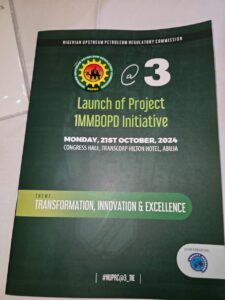

 BIG STORY1 day ago
BIG STORY1 day ago
 BIG STORY5 days ago
BIG STORY5 days ago
 BIG STORY4 days ago
BIG STORY4 days ago
 BIG STORY12 hours ago
BIG STORY12 hours ago
 BIG STORY4 days ago
BIG STORY4 days ago
 BIG STORY3 days ago
BIG STORY3 days ago
 BIG STORY3 days ago
BIG STORY3 days ago
 BIG STORY4 days ago
BIG STORY4 days ago




